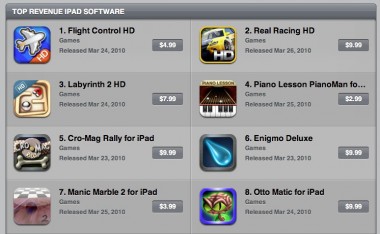 [In this opinion piece, Gamasutra editor Kyle Orland argues that Apple's newly-revealed App Store Review Guidelines document is full of inconsistent and vague restrictions that limit app developers’ rights to free expression.]
[In this opinion piece, Gamasutra editor Kyle Orland argues that Apple's newly-revealed App Store Review Guidelines document is full of inconsistent and vague restrictions that limit app developers’ rights to free expression.]
Don’t get me wrong, I understand why Apple doesn’t just go the Android route and allow any app written by some yahoo with a developer account onto its iOS devices. Apple has an interest in guaranteeing that the apps it allows its users to download won’t be destructive, unusable, or misrepresentative of Apple or any other companies or entities.
The majority of Apple’s newly-revealed App Store Review Guidelines, which deal with these kinds of issues, are perfectly understandable.
But like so many other content reviewers before them, Apple has taken this little bit of reasonable restrictive power and extended it to unreasonable levels.
The company’s App Store Review Guidelines have the air of soundness and comprehensiveness about them, but the seven-page document is full of hypocritical, inconsistent and vague restrictions that limit App developers’ rights to free expression.
”If you want to criticize a religion, write a book.”
Let’s start right in the second paragraph of the introduction, where Apple lays out the rationale for restricting app content in the first place:
“We view Apps different than books or songs, which we do not curate. If you want to criticize a religion, write a book. If you want to describe sex, write a book or a song, or create a medical app.”
While it’s awfully nice of Apple to suggest other avenues where developers might practice their religion-hating, sex-loving free expression, I don’t see why such speech is OK when it’s written or sung, but not OK when it’s made interactive.
Why would an iPhone version of a game like Bye Bye Mosques be subject to review (and likely denial) by Apple — while a book encouraging readers to blow up mosques would be theoretically allowed on their book store without review? Why can I download a Prince song about Little Nicky “masturbating to a magazine” from iTunes, but not download an interactive story app that lets me do it myself?
While Apple doesn’t explicitly say why it views apps differently than books or songs, one gets the feeling reading the Review Guidelines that it has something to do with their idea of “keeping an eye out for the kids,” as they put it. After all, children never read or listen to music, but Apple notes:
“We have lots of kids downloading lots of apps, and parental controls don’t work unless the parents set them up (many don’t).”
Even leaving aside the cross-media double-standard for a moment, here we have Apple making the incredible admission that their own parental controls have been made ineffective by an overwhelming lack of parental interest. Not just somewhat ineffective, but so completely ineffective that Apple has felt the need to take on the parental control role for themselves.
If parents really aren’t using the iOS’ parental controls enough, I can think of quite a few things Apple could have done to address this problem. They could have forced users to set up parental controls (or actively opt out of them) when they buy or upgrade an iOS device. They could have mounted one of their extremely popular ad campaigns to educate the masses about the feature. Instead, the company decided to skip the middleman and become surrogate parents for every man, woman and child with an iDevice, no matter their age or maturity level.
Read the rest of this entry »
Tags: app store, Apple, editorial, opinion
 There are now over 300,000 apps on Apple’s App Store in total, according to the latest data. The figure includes both free and paid game and non-game apps, as well as those currently inactive.
There are now over 300,000 apps on Apple’s App Store in total, according to the latest data. The figure includes both free and paid game and non-game apps, as well as those currently inactive. [In this opinion piece, Gamasutra editor Kyle Orland argues that Apple's newly-revealed App Store Review Guidelines document is full of inconsistent and vague restrictions that limit app developers’ rights to free expression.]
[In this opinion piece, Gamasutra editor Kyle Orland argues that Apple's newly-revealed App Store Review Guidelines document is full of inconsistent and vague restrictions that limit app developers’ rights to free expression.] This week, Apple and its
This week, Apple and its  Apple
Apple  [The following article was written by Tom Curtis and originally appeared at FingerGaming sister site Gamasutra.]
[The following article was written by Tom Curtis and originally appeared at FingerGaming sister site Gamasutra.] Apple has added a way for users to view iPad titles on its App Store by release date, a viewing method that reveals there are presently 1,422 iPad games available.
Apple has added a way for users to view iPad titles on its App Store by release date, a viewing method that reveals there are presently 1,422 iPad games available. Apple has reached into the world of video game journalism to head up editorial content for the game section of its iPhone and iPad App Store, hiring longtime IGN editor Matt Casamassina for the position.
Apple has reached into the world of video game journalism to head up editorial content for the game section of its iPhone and iPad App Store, hiring longtime IGN editor Matt Casamassina for the position.







